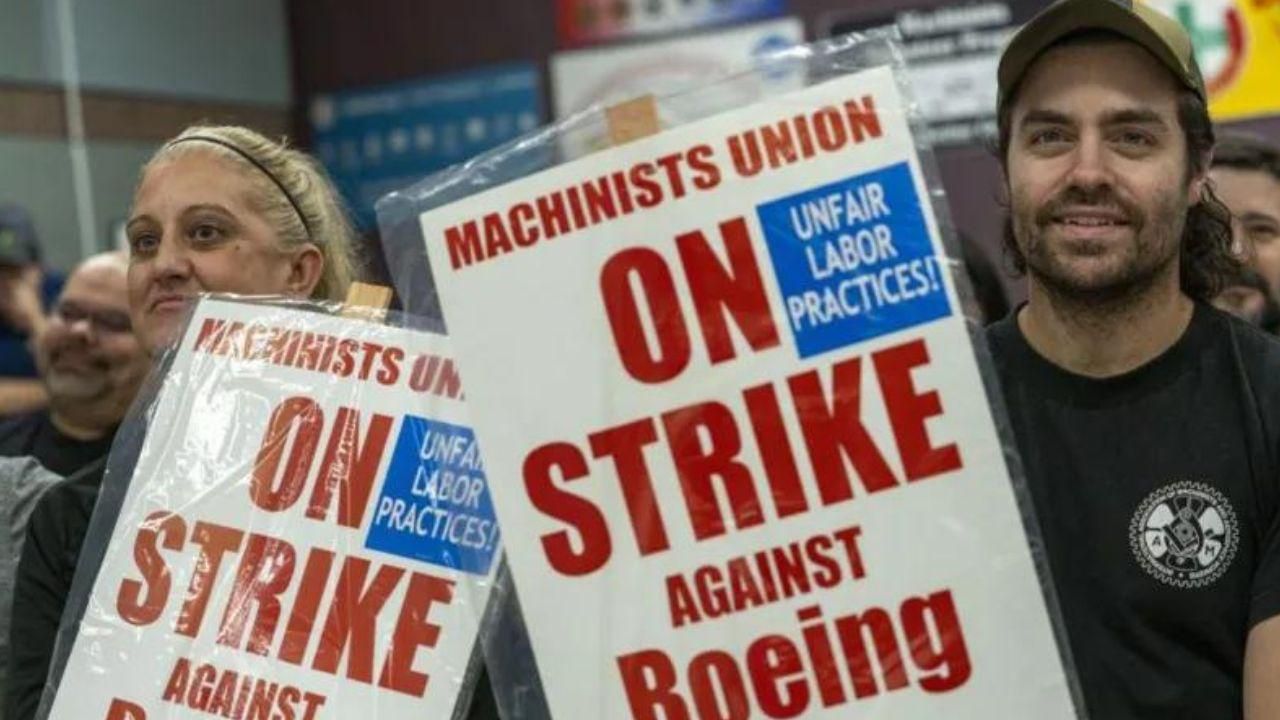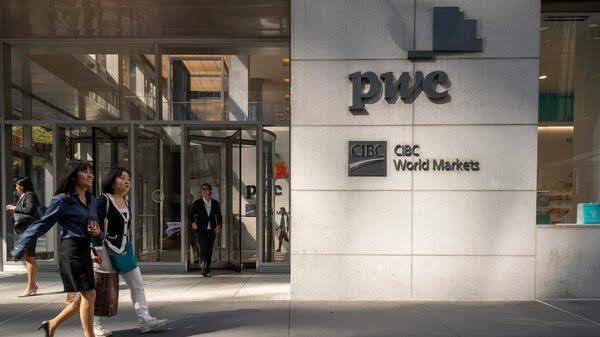Following their overwhelming rejection of a tentative agreement between union leaders and the aircraft manufacturer that promised a 25% wage increase, Boeing employees have decided to go on strike.
More than 30,000 employees, who make aircraft such as the 737 Max and 777 in the Portland and Seattle regions, are scheduled to stop working at midnight Pacific Time (0700 GMT) on Friday.
The walkout is another setback for the firm, which is facing deepening financial losses as it struggles to repair its reputation after a series of safety issues, including two fatal crashes.
It is also a major blow for Boeing's new chief executive Kelly Ortberg, who was appointed last month with a mission to turn the business around.
Almost 95% of the union members who voted in the ballot rejected the pay deal, with 96% backing strike action.
"Our members spoke loud and clear tonight," said Jon Holden, president of the International Association of Machinists and Aerospace Workers (IAM) District 751.
"We strike at midnight," he added.
Boeing said in a statement: “The message was clear that the tentative agreement we reached with IAM leadership was not acceptable to the members."
We remain committed to resetting our relationship with our employees and the union, and we are ready to get back to the table to reach a new agreement."
Earlier this week, union representatives advised members to support the proposed deal.
As well as a 25% pay rise over four years, the preliminary agreement that workers rejected included a commitment from Boeing to build its next commercial plane in the Seattle area if the project started during the lifetime of the contract.
The union initially targeted a number of improvements to workers' packages, including a 40% pay rise.
Mr Ortberg made a last-ditch plea to workers before the vote, warning that a strike would put the company's "recovery in jeopardy".
The current contract between Boeing and the unions was reached in 2008 after an eight-week strike.
That walkout cost the company about $1.5bn (£1.14bn) a month, according to credit rating agency Moody's.
In 2014, the two sides agreed to extend the deal, which is due to expire at midnight on Thursday.
“It’s never a good time for a strike, at least from the perspective of management, the current situation makes it even more problematic," said Greg Waldron, Asia Managing Editor at aviation news website FlightGlobal.
"Still, a great deal will depend on how long the strike lasts. Airline CEOs with 737 Maxes on order will be watching this closely,” Mr Waldon added.
In July, Boeing agreed to plead guilty to a fraud charge and a criminal fine of nearly $244m (£190m) in connection with the fatal crashes of two of its 737 Max planes more than five years ago.
It is also facing other lawsuits and probes after a mid-air blowout in January of a door plug on a new plane flown by Alaska Airlines.
On top of mounting financial losses, the plane maker has had to slow down its assembly lines due to a 737 Max production cap imposed by the US Federal Aviation Administration.








.svg)



